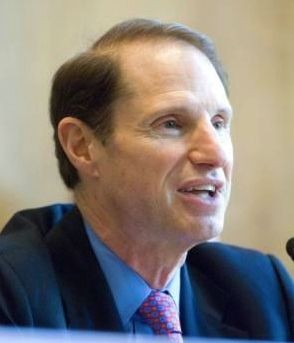Major Cocaine Bust: UK Border Force Seizes Record Shipment at London Gateway
In one of the UK’s largest drug seizures of the past decade, UK Border Force officers have seized cocaine with an estimated street value of £96 million (USD 130 million)...

Senator Ron Wyden (D-OR)
New discoveries of natural gas are beginning to transform the U.S. economy, and energy companies say exporting it is the next logical step. But a call for restraint is coming from Sen. Ron Wyden.
The Oregon Democrat, who will have a powerful perch in Congress to influence the debate, has been fielding substantial home-state opposition to such exports. The brewing fight illustrates how energy abundance can be just as divisive in Washington as a shortage, a theme likely to play out in coming years as the U.S. deals with growing energy supplies.
This month, the Obama administration released a report saying exports would help economic growth, a conclusion the Department of Energy has said would shape its decisions next year on export permits.
Hours after the report came out, Mr. Wyden was sitting at Bistro Cacao, a French restaurant a few blocks from the Capitol, with Andrew Liveris, chief executive of Dow Chemical Co. (DOW), one of the largest natural-gas-consuming companies in the U.S.
Congressional aides said that over dinner, the two men discussed whether natural-gas exports would hurt U.S. manufacturers, and if so, how badly. Mr. Liveris has called the administration’s report “fundamentally flawed” and said unchecked exports would threaten jobs and billions of dollars of manufacturing investments.
The 63-year-old Mr. Wyden is set to become chairman of the Senate Energy and Natural Resources Committee in January. Like Mr. Liveris, he says he fears manufacturers would be hurt if cheap natural gas that could be used at home to make fertilizer or plastics is shipped overseas.
“I want to make sure we look for the opportunities … to the greatest extent possible, to export value-added products rather than the raw material,” the senator said in a recent interview.
“Natural gas is a strategic American advantage,” he added. “We’ve got it. The whole world wants it.”
Just a few years ago, the U.S. was preparing to increase imports of natural gas. An unexpected rise in domestic production, due largely to advances in drilling technology, has transformed the country into a potential net exporter.
For Mr. Wyden, the issue hits close to home. Some of his constituents in Oregon are fighting two proposed natural-gas export terminals near the Pacific Ocean, the only facilities of their kind on the West Coast.
Mr. Wyden is known for working with Republicans, including ones on his committee who want exports to move forward. Some energy companies, like ExxonMobil Corp. (XOM), are urging lawmakers not to stand in the way of new jobs at natural-gas production sites and export terminals.
That is one reason Mr. Wyden hasn’t proposed an outright energy export ban. Instead, he suggests softer restrictions such as a cap. “How can policy makers look to find a sweet spot where you can allow exports to keep wells in production without letting exports drive prices so high that they hurt the American manufacturers?” he said.
The Obama administration has approved natural-gas exports to nations that have free-trade agreements with the U.S., and it is reviewing more than a dozen proposals to ship to countries that don’t have such pacts. So far, it has granted both types of approval to only one plan–by Cheniere Energy Inc. (LNG) for a terminal in Louisiana.
ExxonMobil, a major U.S. natural-gas producer, released a study this month showing natural-gas production in North America should start to overtake demand by around 2020. This provides the “initial build toward export potential,” said William Colton, an Exxon vice president.
The proposed export projects in Oregon–Oregon LNG and the Jordan Cove Energy Project–could provide a launch pad for energy companies looking to ship to Japan and other energy-hungry Asian nations.
Some in Oregon say they welcome the jobs and investments the projects would bring, but others oppose the export terminals and pipelines to bring in the natural gas. Paul Sansone, owner of a 32-acre timber farm in Oregon’s Washington County, said one pipeline could cross his property.
“In general, when people become informed about the projects, they aren’t for them,” Mr. Sansone said.
– Tennille Tracy, (c) 2012 Dow Jones & Company

Sign up for gCaptain’s newsletter and never miss an update

Subscribe to gCaptain Daily and stay informed with the latest global maritime and offshore news


Stay informed with the latest maritime and offshore news, delivered daily straight to your inbox
Essential news coupled with the finest maritime content sourced from across the globe.
Sign Up